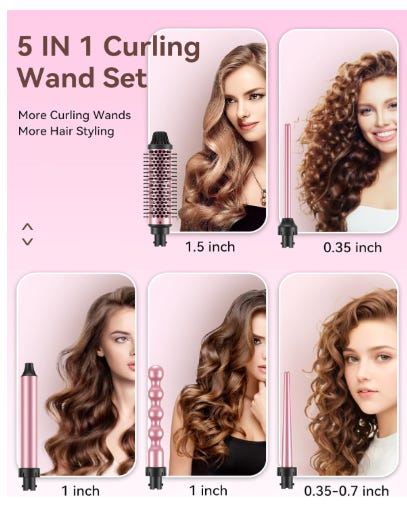Marketing under fire: Savage x Fenty losing VIP customers
When the Rihanna Navy found out that the pop star had become the world’s richest female musician and worth $600 million, fans came out in droves on Twitter and beyond to celebrate. Although the singer has done well for herself in the music industry, it was the partnership with LVMH (a French luxury brand run by billionaire Bernard Arnault) to create Fenty Beauty that significantly boosted her income.
Unfortunately, as many businesses find out, every partnership isn’t a winning combination. In Rihanna’s case, a separate beauty project with Savage X Fenty is putting the singer in a bad light. In recent news, Savage X Fenty’s Xtra VIP Membership has been linked to deceptive advertising. Even worse, TechStyle Fashion Group—the company she partnered with—is no stranger to these accusations.
Los Angeles-based company TechStyle Fashion Group may have initially seemed like an obvious choice. Advertising itself with a return on investment (ROI) of 5 million members in 12 countries with 22 million social media fans, it’s worked with well-known companies Fabletics, JustFab, ShoeDazzle and FabKids. However, Truth in Advertising reports that in 2014, subscription-based retailer Fabletics was ordered to pay $1.8 million to resolve deceptive advertising allegations.
Recommended Read: “‘Savage’ Streaming and Smart Business ~ How Fenty Beauty and YouTube Changed the Fashion Industry”
Adam Goldenberg (the co-founder and co-CEO of TechStyle) was also sued by the FTC as the co-CEO of the parent company of Sensa Products, LLC for deceptively marketing a weight-loss product. Goldenberg was hit with a $46.5 million judgment and a permanent injunction. That same year, Fabletics (co-owned by actress Kate Hudson) was permanently prohibited from future “deceptive negative-option offers.”
And from what Xtra VIP Membership users are saying, old habits die hard and the company is back at it again.
ADVERTISEMENT ~ Amazon
As an Amazon affiliate, I earn a percentage from each product purchased using my referral link.
Why Savage X Fenty Isn’t Completely Wrong—or Right
Although the two-year-old company has an A-rating on the Better Business Bureau, it averages a 1.25-star customer review rating on the same site. And most of the ratings are from users largely complaining about unknowingly signing up for a $49.95 recurring monthly membership fee.
While the website doesn’t hide regularly priced items, the VIP exclusive offers and savings are hard to miss due to the website design and layout. The regular pricing is in a light gray while VIP pricing is in bright bold colors. And sometimes the lower-priced VIP rates are crossed out for even cheaper rates that are even more appealing. For example, one regularly priced $49 bra has a $39 VIP-priced bra that is crossed out for $19.50.
Additionally, according to a Savage X Fenty representative in the BBB messaging system, “Checking out as a VIP gets you a discount off your first order, as well as special pricing, free shipping, and other perks on future orders.”
Xtra VIP members are also given an option to “Skip the Month” between the 1st and the 5th of the month to avoid the monthly $49.95 charge. Xtra VIP members have no maximum number of times that they can skip membership between this segment of days.
Recommended Read: “In the Nude ~ Apparel Industry Slowly Servicing Women of Color”
But the foggy areas with this membership are primarily in the “checking out as VIP” and pricing areas. From the email blasts and navigation link browsing, users only see VIP pricing. The site makes it too easy to overlook the wording directly underneath the VIP bag option that states: “After your first purchase, you will be charged $49.95 each month if you don’t shop or skip by the 5th. Cancel anytime.”
A careful reader will see these options during the ordering process. But similar to any other retail product being sold online, retailers should be aware of the Restore Online Shoppers’ Confidence Act (ROSCA). Under the Online Shopper Protection:
Third-party sellers offered membership clubs to consumers as they were in the process of completing their initial transactions on hundreds of websites. These third-party “post-transaction” offers were designed to make consumers think the offers were part of the initial purchase, rather than a new transaction with a new seller.
Third-party sellers charged millions of consumers for membership clubs without ever obtaining consumers’ billing information, including their credit or debit card information, directly from the consumers. Because third-party sellers acquired consumers’ billing information from the initial merchant through “data pass,” millions of consumers were unaware they had been enrolled in membership clubs.
The use of a “data pass” process defied consumers’ expectations that they could only be charged for a good or a service if they submitted their billing information, including their complete credit or debit card numbers.
Third-party sellers used a free trial period to enroll members, after which they periodically charged consumers until consumers affirmatively canceled the memberships. This use of “free-to-pay conversion” and “negative option” sales took advantage of consumers’ expectations that they would have an opportunity to accept or reject the membership club offer at the end of the trial period.
Additionally, it doesn’t appear that customers even need to pay to learn about these VIP offers. Savage X Fenty website also has a “Sign Up for Email” option at the bottom of the page for New Xtra VIP Xclusive offers that require no extra charge. Of course, getting the advertised prices in the email would still result in signing up for a membership, but at least members would actively know that they were doing so.
How Other Retailers Can Learn From Rihanna X Savage Controversy
Collecting data is one of the best ways to market to the right clients. While onetime customers can result in a profit, exclusive offers and memberships create repeat customers. Making all pricing options immediately available in emails, website layouts and pop-up advertising — in the same font color, font type, font size—is an easy fix for web developers. But the deceptive advertising and mistrust will leave a lasting impression that spreads to potential new customers. Online retailers should approach their web design layout the same way as they would in brick-and-mortar stores.
Recommended Read: “What Rihanna’s Savage x Fenty show should’ve taught Victoria’s Secret ~ This Victoria’s Secret customer is reevaluating her shopping choices”
When customers walk into a physical store, they usually see large clearance and sale prices on the racks. But the correctly marked tags and/or digital pricing confirm exactly what the original and discount prices are. Human cashiers are required to ask for payment for store memberships. Online websites should have the same requirements and follow all ROSCA protection rights.
While additional payment pop-ups, reminders and web display changes may deter some customers from signing up, retailers will also gain trust for being transparent. So why does this matter? BBB customer complaints about companies being too honest or too transparent are nonexistent.
(Note: This post was originally published as an Upwork freelancer for RETHINK Retail.)
Did you enjoy this post? You’re also welcome to check out my Substack columns “Black Girl In a Doggone World,” “BlackTechLogy,” “Homegrown Tales,” “I Do See Color,” “One Black Woman’s Vote” and “Window Shopping” too. Subscribe to this newsletter for the monthly post on the third Thursday.
If you’re not ready to subscribe but want to support my writing, you’re welcome to tip me for this post! I’ll buy a dark hot chocolate on you. Thanks for reading!






